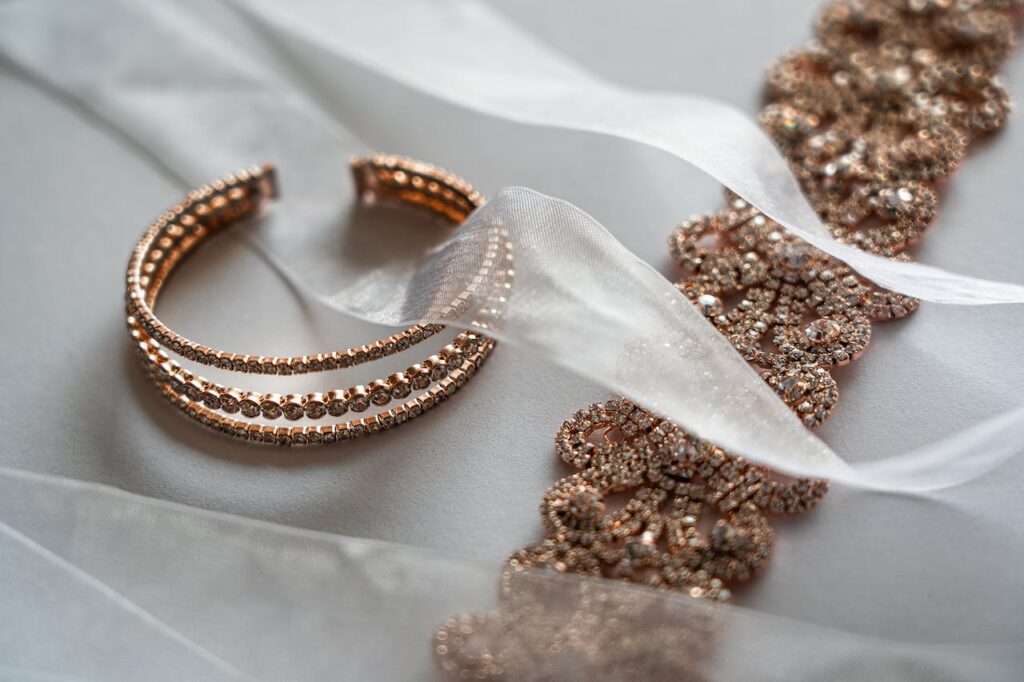Introduction
Choosing the perfect metal for your jewelry is a decision that goes beyond aesthetics. It involves considering factors like durability, maintenance, and budget. Let’s dive into the pros and cons of various jewelry metals, providing you with valuable insights to make an informed decision.
Popular Jewelry Metals
Gold
Gold, a timeless classic, offers a luxurious appeal to jewelry. Its pros include durability and resistance to tarnish, but it can be prone to scratches. On the flip side, the cons involve the cost and the fact that pure gold is soft.
Silver
Silver’s affordability and versatility make it a popular choice. Its pros include a wide range of designs, but it tarnishes easily and may require regular maintenance.
Platinum
Known for its rarity and durability, platinum is hypoallergenic and doesn’t tarnish. However, its cons include a higher price point and the fact that it can develop a patina over time.
Emerging Trends in Jewelry Metals
Rose Gold
Rose gold, a blend of gold, copper, and silver, has gained popularity for its romantic hue. It complements various skin tones but may cause allergies in some individuals.
Palladium
A lighter alternative to platinum, palladium is hypoallergenic and has a lower price point. However, it may scratch more easily than platinum.
Unique Metals for Unconventional Jewelry
Titanium
Known for its strength and lightness, titanium is hypoallergenic and resistant to corrosion. However, resizing can be challenging, and it may not be suitable for intricate designs.
Tungsten
Tungsten is exceptionally durable and scratch-resistant, making it ideal for those with an active lifestyle. On the downside, it cannot be resized, and it may crack under high pressure.
Factors to Consider When Choosing Jewelry Metals
Skin Sensitivity
Consider your skin’s sensitivity to metals. Some individuals may be allergic to certain metals, affecting their choice of jewelry.
Budget
Your budget plays a crucial role in selecting the right metal. Gold and platinum are typically more expensive than silver or alternative metals.
Lifestyle
Your lifestyle influences the choice of metal. If you lead an active life, durable metals like titanium or tungsten might be preferable.
Tips for Maintenance and Care
Cleaning and Polishing
Regular cleaning and polishing can enhance the longevity of your jewelry. Follow specific care instructions based on the metal type.
Storage
Proper storage prevents scratches and tarnishing. Consider keeping jewelry in separate compartments or using anti-tarnish pouches.
Sustainable Jewelry Metals
Eco-conscious consumers are turning to sustainable options. Explore metals like recycled gold or lab-grown diamonds for an eco-friendly choice.
Conclusion
Choosing the right jewelry metal involves weighing various factors. From the timeless allure of gold to the modern appeal of titanium, each metal has its unique characteristics. Consider your lifestyle, budget, and preferences to find the perfect match for your jewelry collection.
Frequently Asked Questions
-
Can I wear silver jewelry every day?
- While silver is versatile, wearing it daily may lead to tarnishing. Regular cleaning can help maintain its shine.
-
Are alternative metals like titanium safe for sensitive skin?
- Yes, titanium is hypoallergenic, making it a suitable choice for individuals with sensitive skin.
-
How can I keep my gold jewelry from scratching?
- Storing gold jewelry separately and avoiding contact with abrasive surfaces can minimize scratches.
-
Is palladium as durable as platinum?
- Palladium is durable but may scratch more easily than platinum. Consider your lifestyle when making a choice.
-
What are the benefits of choosing sustainable jewelry metals?
- Sustainable metals contribute to environmental conservation, offering an ethical choice for eco-conscious consumers.



iqx0b2
lqh403